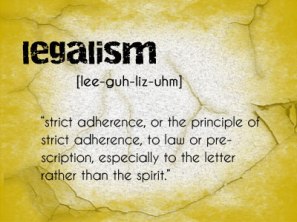Normally I don’t post rebuttals to people’s opinions. Proverbs 18:2 states “A fool takes no pleasure in understanding, but only in expressing his opinion.” However, I think that people need to realize that we are told not to lean on our own beliefs (our own understanding) but rather that we are to lean upon Christ and the understanding that flowed down from Heaven.A friend of mine shared an article about seven things Christians believe are in the Bible, but are not. She cited that her aunt is a graduate of a seminary and her uncle an ordained minister. However, being a graduate of a seminary doesn’t mean that your beliefs are right and neither does being an ordained minister. Tonight I am going to prove that these seven things are in the Bible. Why is this important I hear you say? Because as Christians we can’t allow, Satan have any amount of space in our lives. We give him one ounce and he takes the entire cake.
**my list runs 1-7; while the article does a countdown**
Let’s look at the list:
1. The Rapture.
The Article: “It comes from a particular theology that was created around 100 years ago – an admittedly interesting concoction, composed of random pieces from Daniel, Revelation, and Paul’s letter to the Christian community in Thessalonica – and has been snatched up by plenty of theologians who act as though this was handed down by God before the creation itself. A brilliant assessment of this harmful, dangerous, and totally non-biblical theology can be found in Barbara Rossing’s The Rapture Exposed.
The Truth: In the original text of 1 Thessalonians 4:17 we find that the Greek word is harpadzo. It means to be “caught up.” Before you all flip and say well the word Rapture isn’t in the Bible, let me correct you and say that you are failing to realize that the true meaning of harpadzo is “rapture.” Proof is found in the fact that Jerome, in the 4th century composing his translation used the word rapturo. It is from that point that the word has come to be a favorite to describe the event in which Christ comes to call up His church.
2. God hates_____________________ (Fill in the blank)
The Article: Sorry, Westboro Baptist. I’m not talking about Levitical codes or even judgment and damnation. Show me the verse that has those words.
The Truth: There are 6 things that God hates, look at the verses of Proverbs 6:16-19. While the things that we would think of Westboro Baptist as hating may not be listed, it doesn’t mean that God approves of them either.
3. Everything Happens for a Reason
The Article: This is often coupled with other horrific theological statements said during times of tragedy – e.g. “God must have needed another angel/flower-in-the-garden/whatever” – that simply have no biblical basis. There is, you might say, a trajectory of God and God’s people, heading towards a final future of God’s commonwealth on earth – but the idea of things happening for a reason is often much more simplistic and harmful, and is often said because we don’t know what else to say. Luckily, it’s not in the Bible we’re fond of quoting at people.
The Truth: Ecclesiastes 1:1-8 even says “for everything there is a season.” Anyone who says this isn’t in the Bible has evidently NEVER read the Bible.
4. God is in Control
The Article: Nope. If anything, story after biblical story shows a God whose mind is changed (Genesis 18:16-33; Exodus 32:1-14; the story of Jonah). There are also stories that go off the deep end (i.e. the entire account of the Judges), where God is seemingly nowhere in sight.
This is a difficult concept, I know. If God isn’t all-powerful the way we’ve been taught, then what can we believe in? This is where we have to remind ourselves that our very concept of power is routinely subverted in the biblical story – most alarmingly in the story of Jesus, and his seemingly weak, powerless, and outright shameful death on the Roman version of the electric chair, the cross.
The Truth: Oh, Where to Start?!? Let’s look at Proverbs 19:21 “Many are the plans in the mind of a man, but it is the purpose of the Lord that will stand.” Oh, Romans 8:28 “And we know that for those who love God all things work together for good, for those who are called according to his purpose.” What about Isaiah 45:6-7 “That people may know, from the rising of the sun and from the west, that there is none besides me; I am the Lord, and there is no other. I form light and create darkness, I make well-being and create calamity, I am the Lord, who does all these things.” All these and many more talk about the God of Control. Does God change His mind? Of course, but it’s only because of the pouring out of the hearts of those who LOVE Him. Dutch Sheets said in his book Intercessory Prayer “the concept of intercession can be summarized as mediating, going between, pleading of another, representing one party to another for but not limited to legal situations.” So yes, God’s mind can be changed, doesn’t mean He isn’t in control.
5. We must accept Jesus into our hearts as our personal Lord and Savior.
The Article: Nowhere does Jesus ask for this particular act to be done (much less say that it’s necessary for salvation) – he says a lot about inviting people to follow him, but doesn’t seem concerned about the act of “accepting” him into one’s heart.
The Truth: The truth of the matter is that the Bible does teach Jesus as our personal Lord and Savior. Our sins are OURS and we commit them; they are personal sins. 1 John 1:9 “If we confess our sins, he is faithful and just to forgive us our sins and to cleanse us from all unrighteousness.” We can also look at John 3:16b “For WHOSOEVER believes in Him shall not perish but shall have everlasting life.” Accepting Jesus as your personal savior, the one who SAVED YOUR PERSON through HIS death and resurrection is Biblical.
6. Jesus died for our sins
The Article: Whoa, don’t freak out. Walk with me for a second. At least, this particular idea doesn’t come from the mouth of Jesus himself. It’s nowhere in the Gospel accounts of his life (Mark, Luke, Matthew, or John). The closest we get are in the words of Paul (which, it’s important to remember, do not encompass all that Jesus the Christ was/is/will be). In his letter to the Christian community in Rome (3:25) and his first letter to the one in Corinth (15:4), Paul wrestles with this idea (especially in the latter, where the words “Christ died for our sins” is right there, although it’s followed with “in accordance with the scriptures,” which begs the question – which scriptures? The Hebrew Scriptures? The Gospel stories?).
The Truth: Simply look at the Gospels to see that Jesus did die for the sins of the world, even in his old age, John wrote in one of his letters 1 John 2:2 “He is the propitiation for our sins, and not for ours only, but also for the sins of the whole world.” 1 Peter 2:24 “He himself bore our sins in his body on the tree, that we might die to sin and live to righteousness. By his wounds you have been healed.” Once the disciples and those who were with Christ realized why he had died, they began to minister the gospel of Christ’s death. But even Christ himself said in John 14:6 “Jesus said to him, “I am the way, and the truth, and the life. No one comes to the Father except through me.” John 5:24 “Truly, truly, I say to you, whoever hears my word and believes him who sent me has eternal life. He does not come into judgment, but has passed from death to life.”
7. God helps those who help themselves
The Article: No. Stop saying this. The quote is William Shakespeare’s to claim. But, even more than that, the biblical witness points to the opposite of this particular phrase. Again and again, God calls people who can’t seem to pull themselves up by their bootstraps – Mary, David, and Moses, to name a few.
The Truth: While this exact saying ins’t in the Bible, it doesn’t mean that it’s ideal isn’t placed in Scripture. I will concede on this one, but I do have something to say about helping oneself. In terms of salvation, we are all utterly helpless. We are all infected by sin (Romans 3:23), and condemned as a result of that sin (Romans 6:23). Nothing we can do on our own can remedy this situation (Isaiah 64:6). Thankfully, God is the helper of the helpless. While we were still sinners, Jesus died for us (Romans 5:8). Jesus paid the penalty that we were incapable of paying (2 Corinthians 5:21). God provided the “help” that we need precisely because we could not help ourselves. Apart from salvation, there is perhaps a way that the concept “God helps those who help themselves” is correct. As an example, if you asked me to help you move a piece of furniture, but then just watched me as I moved the furniture for you, I was not actually helping you. I would be doing the work for you. Many Christians fall into the trap of inactivity. Many Christians ask God for help, but then expect God to do everything Himself.
Sources Cited:
The Popular Handbook on the Rapture; Tim LaHaye, Thomas Ice and Ed Hindson
Intercessory Prayer; Dutch Sheets
The Holy Bible: English Standard Version. Wheaton: Standard Bible Society, 2001.
The Article: http://faithinterrupted.blogspot.com/2013/11/top-seven-things-people-think-are-in.html

